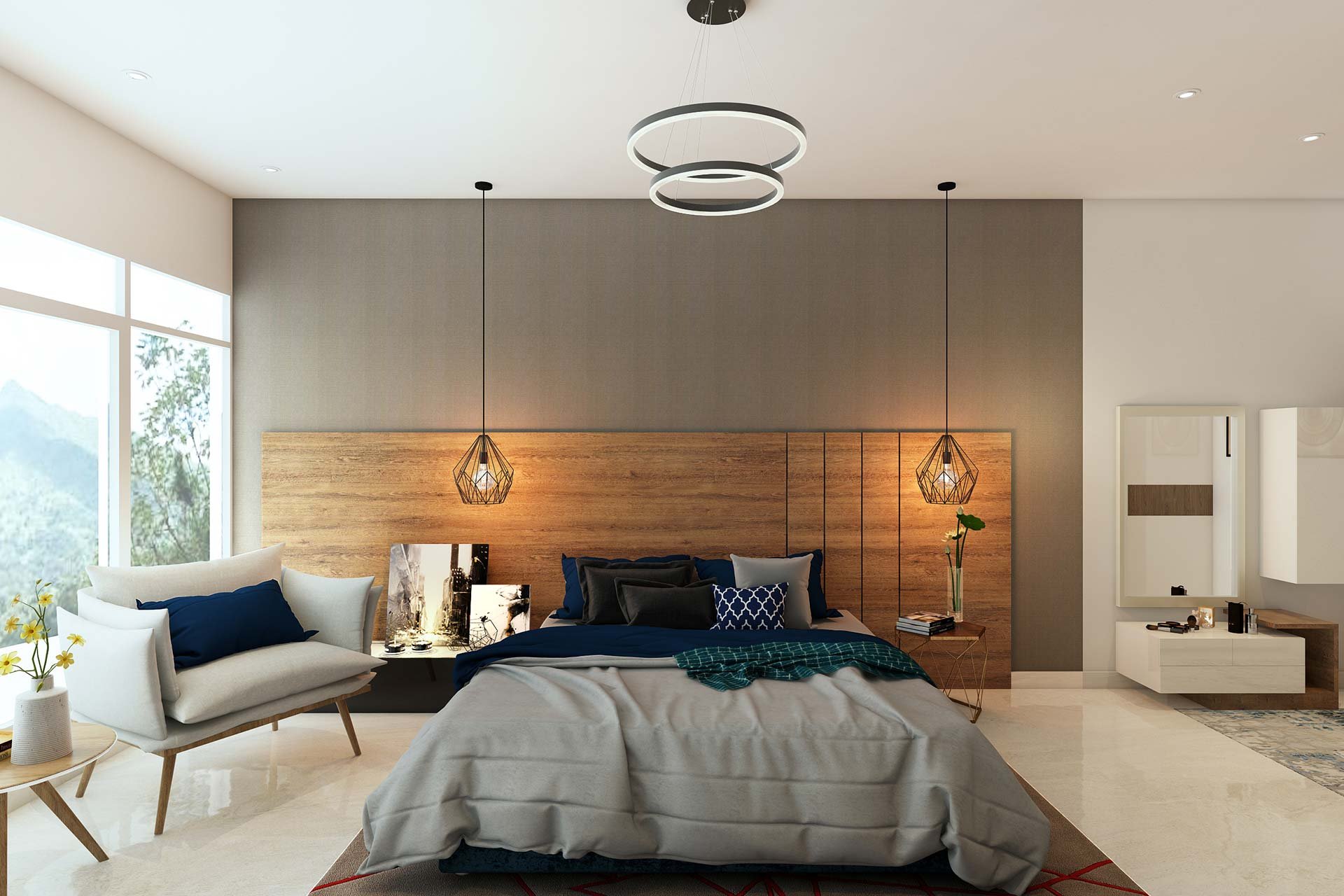Home>diy>Building & Construction>How To Choose An Architect For Home Building


Building & Construction
How To Choose An Architect For Home Building
Modified: December 7, 2023
Looking for an architect for your home building project? Learn how to choose the perfect architect for your building construction needs.
(Many of the links in this article redirect to a specific reviewed product. Your purchase of these products through affiliate links helps to generate commission for Storables.com, at no extra cost. Learn more)
Introduction
When embarking on a home building project, choosing the right architect is crucial to ensuring the success of your construction venture. An architect is not just a designer; they are the visionary professionals who can transform your dreams and ideas into a tangible and functional dwelling.
However, with numerous architects available, it can be overwhelming to select the ideal one for your project. This article will guide you through the process of selecting an architect, ensuring that you find a reliable and skilled professional who can understand your vision and deliver outstanding results.
Whether you are building a new home from scratch or planning a major renovation, the services of an architect are essential. Architects are trained to consider various factors such as your lifestyle, site conditions, budget, and sustainability to create a space that not only meets your needs but also fulfills your aspirations.
The first step in choosing an architect for your home building project is to clearly define your needs and goals. Understanding what you want to achieve with your new home will help you communicate effectively with potential architects and assess their suitability for the task.
Once you have a clear idea of your requirements, it’s time to research architects in your area. Look for architects who specialize in residential projects and have a strong background in building construction. Pay attention to their portfolios and past projects to get a sense of their design style and capabilities.
Reviewing portfolios is an essential step in the architect selection process. Assess the range and quality of their previous work to determine if their design aesthetic aligns with your preferences. Consider elements such as architectural style, attention to detail, and overall functionality of the spaces they have created.
While reviewing portfolios, don’t forget to check the credentials and experience of the architects you are considering. Verify their professional affiliations, licenses, and certifications to ensure that they meet the necessary industry standards. Look for architects who have experience working on projects similar to yours and have a proven track record of successful completions.
After narrowing down your options based on portfolios and credentials, it’s time to interview potential architects. This step allows you to assess their communication style, approach to design, and their understanding of your project. A face-to-face meeting or a virtual consultation will give you a chance to ask questions and evaluate their compatibility with your vision and goals.
Key Takeaways:
- Choosing the right architect for your home building project involves defining your needs, researching architects, reviewing portfolios, checking credentials, interviewing potential architects, discussing budget and fees, and obtaining references to ensure a successful collaboration.
- Effective communication, compatibility, and trust are crucial when selecting an architect. Evaluating qualifications, experience, portfolio, and references will guide you in making the best decision for your dream home.
Read more: How To Choose A Landscape Architect
Determine Your Needs and Goals
Before you start searching for an architect, it is important to have a clear understanding of your needs and goals for your home building project. This will not only help you communicate effectively with potential architects but also ensure that you find an architect who specializes in the type of project you have in mind.
Start by assessing your lifestyle and the needs of your household. Consider factors such as the number of bedrooms and bathrooms you require, the size and layout of the kitchen, the amount of storage space needed, and any specific features or amenities you desire. Think about your long-term plans and how your home should accommodate them. For example, if you plan to start a family or work from home, you may need additional rooms or a dedicated home office space.
Next, consider the architectural style that appeals to you. Look for inspiration in magazines, online platforms, and even in your local community. Explore various architectural styles such as modern, contemporary, traditional, or a blend of different styles. Having a clear idea of the architectural aesthetics you prefer will help guide your selection process and find an architect whose design style aligns with your taste.
Furthermore, think about the practical aspects of your home building project. Consider the size and shape of the lot where your home will be built and evaluate any site-specific challenges. Assess the topography, orientation, and natural elements that may influence the design. Take into account any environmental considerations, such as energy efficiency and sustainability, that are important to you. By understanding your site and its constraints, you can choose an architect who has experience working with similar conditions and can maximize the potential of your property.
In addition to the functional and aesthetic aspects, establish a budget for your home building project. Determine how much you are willing to spend and ensure that it aligns with your expectations. Keep in mind that an architect’s fees, construction costs, and various other expenses will need to be factored into your budget. Discussing your budget with potential architects will help you gauge whether they can work within your financial parameters.
Finally, outline your goals for the project. Consider the timeline for completion, any specific deadlines or milestones you have in mind, and any special considerations such as integrating sustainable design practices or incorporating specific materials or technologies. Clearly articulating your goals will ensure that you select an architect who can help you achieve them.
By taking the time to determine your needs and goals, you will be better equipped to communicate your vision to potential architects. This clarity will also help in assessing whether a specific architect is the right fit for your project. Remember that each home building project is unique, and finding an architect who understands and values your goals is key to a successful collaboration.
Research Architects
Once you have a clear understanding of your needs and goals for your home building project, it’s time to start researching architects in your area. A thorough research process will help you find a selection of qualified professionals who have the expertise and experience to bring your vision to life.
Start by asking for recommendations from friends, family, and colleagues who have undergone similar projects. Their firsthand experiences and insights can provide valuable guidance in your search for an architect. Additionally, seek recommendations from local builders, contractors, and real estate professionals who work closely with architects and can vouch for their abilities.
Use online resources and directories to compile a list of architects in your area. Websites such as the American Institute of Architects or local architectural associations can provide a comprehensive listing of licensed architects. Take the time to read reviews and testimonials from past clients, which can give you an idea of their professionalism, communication skills, and the quality of their work.
Visit the websites of the architects on your list and explore their online portfolios. Pay attention to the projects they have completed and the styles they specialize in. Look for projects that align with your vision and goals, and consider the diversity and breadth of their body of work. A strong and varied portfolio indicates an architect’s ability to adapt to different design styles and project requirements.
Consider the size and scope of the projects the architects have worked on. While some architects specialize in large-scale residential or commercial projects, others may focus on smaller, more intimate designs. Assess whether their past projects are similar in scale and complexity to your own, as this can indicate their ability to handle your specific project requirements.
Research the architects’ qualifications and credentials. Verify their licensure and check if they are members of professional organizations such as the American Institute of Architects (AIA). Membership in these organizations demonstrates a commitment to professional ethics and ongoing education, indicating a higher level of expertise and quality in their work.
During your research, consider the architects’ reputation within the industry. Look for any awards or recognitions they have received, as these accolades can be a testament to their skill and expertise. Also, check if they have been involved in any architectural publications or have been featured in design magazines, which further indicates their reputation and standing in the industry.
Take note of the architects’ availability and workload. Some architects may have a waitlist or be booked for months in advance, while others may have more flexibility in their schedule. Consider your project timeline and determine if the architects you are researching can accommodate your needs.
By thoroughly researching architects and gathering a list of potential candidates, you can ensure that you are selecting from a pool of qualified professionals. This research phase will provide you with the necessary information to make informed decisions and move forward in the selection process.
Review Portfolios
Once you have compiled a list of potential architects for your home building project, it’s time to review their portfolios. The portfolio is a window into an architect’s design aesthetic, style, and skill level. By carefully examining their past work, you can assess whether their design sensibilities align with your vision and determine if they have the expertise to bring your dream home to life.
Start by visiting the websites of the architects on your list. Most architects showcase their portfolios online, allowing you to browse through their previous projects and get a sense of their design philosophy. Pay attention to the range of projects they have completed, as this will give you an idea of their versatility and ability to work on different types of homes and architectural styles.
Take note of the visual appeal of their portfolio. While aesthetics are subjective, a well-presented portfolio demonstrates an architect’s attention to detail and their ability to create visually pleasing designs. Look for clean and professional layouts that showcase the projects with clarity and allow you to focus on the architectural elements and spatial arrangements.
Examine the quality of the photographs or renderings of the projects. Clear, high-resolution images highlight the architectural features, materials, and finishes. Assess the level of detail captured in the photos and how well these images convey the overall feel and ambiance of the spaces. The quality of the portfolio images can be an indication of an architect’s commitment to showcasing their work in the best possible light.
Consider the diversity of projects within the architect’s portfolio. Look for a variety of styles, sizes, and scales. This versatility demonstrates an architect’s ability to adapt to different design challenges and cater to a range of client preferences. Assess whether the projects in the portfolio align with your own vision and goals for your home.
Pay attention to the functionality and practicality of the spaces showcased in the portfolio. Look for projects that prioritize the needs of the homeowners and successfully integrate form and function. Consider how well the architect has maximized the available space, creating efficient layouts and comfortable living environments.
While reviewing the portfolio, try to identify any recurring design elements or signature style that the architect may have. Some architects may have a distinctive aesthetic or approach to design that is evident throughout their portfolio. If you resonate with their style, it may indicate a good match between your preferences and their design sensibilities.
Take note of any special features or innovative design solutions showcased in the portfolio. Look for examples of sustainable design practices, utilization of natural light, integration of smart home technologies, or unique materials and finishes. These elements can give you confidence that the architect is knowledgeable about current trends and can incorporate modern amenities into your home.
If possible, seek out testimonials or case studies that accompany the portfolio. These insights from past clients can provide valuable information about the architect’s professionalism, communication skills, and ability to deliver on their promises. Positive testimonials and successful case studies reinforce the architect’s reputation and reliability.
By carefully reviewing portfolios, you can gain a deeper understanding of an architect’s design capabilities and assess whether their style and expertise align with your vision for your home. This step is essential in selecting an architect who can bring your dreams to life and create a home that reflects your unique personality and lifestyle.
Check Credentials and Experience
When choosing an architect for your home building project, it’s important to thoroughly check their credentials and assess their level of experience. Credentials and experience are strong indicators of an architect’s qualifications, expertise, and ability to handle the complexities of your construction project.
First and foremost, verify the architect’s licensure. Architects are required to be licensed in the jurisdiction where they practice. This ensures that they have met the necessary educational and professional requirements to provide architectural services. Check with your local licensing board or architectural association to ensure that the architect you are considering is properly licensed and in good standing.
In addition to licensure, consider the architect’s education and professional affiliations. Look for architects who have graduated from accredited architectural programs and have obtained relevant degrees, such as a Bachelor of Architecture (B.Arch) or a Master of Architecture (M.Arch). Membership in professional organizations such as the American Institute of Architects (AIA) can also demonstrate an architect’s commitment to their craft and ongoing professional development.
Assess the years of experience the architect has in the field. While every architect has to start somewhere, selecting an architect with a solid track record can provide you with added confidence. An experienced architect has likely worked on various projects, encountered unique challenges, and developed effective solutions. Their experience allows them to navigate the complexities of the design and construction process more efficiently.
Review the architect’s past work history and project portfolio. Look for projects similar in scope and complexity to your own. An architect with experience in designing and overseeing the construction of homes similar to yours will be better equipped to handle the specific challenges and requirements of your project.
Consider any specialized expertise or certifications that the architect may possess. Some architects may have additional qualifications in areas such as sustainable design, historic preservation, or accessibility design. If your project has specific requirements in these areas, hiring an architect with specialized expertise can be beneficial.
Seek out testimonials or references from past clients. Hearing directly from those who have worked with the architect can provide insights into their professionalism, communication skills, and ability to deliver on their promises. Don’t hesitate to request references and contact them to ask about their experience working with the architect.
Check if the architect carries professional liability insurance. This insurance protects both the architect and the client in the event of errors or omissions in the design process. It is a sign of professionalism and responsible practice.
Finally, consider any awards, recognition, or published work the architect may have received. These accolades can demonstrate that the architect is respected within the industry and has a proven track record of excellence in their work.
By checking the credentials and experience of potential architects, you can ensure that you are selecting a highly qualified professional who has the knowledge, skills, and experience necessary to handle your home building project. Taking the time to conduct this evaluation will give you peace of mind and set the foundation for a successful collaboration.
Interview Potential Architects
Once you have narrowed down your list of potential architects for your home building project, it’s time to schedule interviews with each of them. The interview process allows you to have a face-to-face or virtual conversation with the architects and assess their qualifications, communication style, and compatibility with your project. Here are some key points to consider during the interview process:
Start by discussing your project and explaining your vision and goals. A good architect will listen attentively and ask pertinent questions to better understand your needs and aspirations. Pay attention to their level of engagement and their ability to grasp the essence of your vision.
Ask about the architect’s design process and how they approach each project. Inquire about their methodology, collaboration with other professionals (such as engineers and contractors), and their ability to integrate your ideas into the final design. Understanding their design philosophy will help you determine if their approach aligns with your expectations.
Assess the architect’s communication style and ability to effectively convey ideas. Communication is key throughout the design and construction process, so it’s important to work with an architect who can listen to your concerns, explain technical concepts in a way that you understand, and keep you informed at every stage of the project.
Discuss their availability and the projected timeline for your project. Inquire about the architect’s workload and any potential conflicts that may arise. Ensure that their schedule aligns with the timeline you have in mind and that they have the capacity to devote the necessary attention to your project.
Ask about their experience with obtaining the necessary permits and navigating the local building codes and regulations. An experienced architect will have a solid understanding of the local requirements and can help streamline the permitting process.
Inquire about their relationships with contractors and builders. A strong working relationship between the architect and the construction team is essential for the smooth execution of your project. Ask the architect how they collaborate with builders and ensure that their designs are implemented accurately and efficiently.
Discuss their approach to sustainability and energy-efficient design. If sustainability is a priority for you, ask the architect about their experience with eco-friendly design principles, materials, and technologies that can enhance the energy efficiency and sustainability of your home.
Ask the architect to provide examples of projects similar to yours that they have successfully completed. Request references from past clients and take the time to contact them to gather feedback on their experience working with the architect. Their insights can provide valuable information about the architect’s professionalism, responsiveness, and ability to meet deadlines.
Discuss the architect’s fee structure and expectations regarding compensation. Ask for clarity on how they charge for their services and what is included in their fee. It’s essential to have a clear understanding of the financial aspects to avoid any misunderstandings down the line.
Pay attention to the rapport and chemistry between you and the architect. Building a home can be a lengthy process, so it’s important to establish a good working relationship based on trust, mutual respect, and effective communication. Select an architect with whom you feel comfortable and confident in their abilities to bring your vision to life.
By conducting interviews with potential architects, you can gain deeper insights into their qualifications, communication skills, and compatibility with your project. This personal interaction allows you to assess their approach and determine if they are the right fit for your home building venture.
When choosing an architect for home building, look for someone with experience in residential design, good communication skills, and a portfolio that aligns with your style and vision. It’s also important to check their credentials and ensure they are licensed and insured.
Consider Communication and Compatibility
When selecting an architect for your home building project, communication and compatibility are important factors to consider. Building a home requires a collaborative and open line of communication between you and your architect, as well as a strong working relationship based on trust and understanding. Here are some key points to consider when evaluating communication and compatibility:
Evaluate the architect’s communication style during your initial interactions. A good architect will actively listen to your ideas, concerns, and feedback. They should be able to effectively articulate their thoughts and explain technical concepts in a way that you understand. Pay attention to their response time and willingness to address your questions and inquiries promptly.
Consider the architect’s ability to understand and interpret your vision. They should be able to grasp your design aspirations and translate them into tangible concepts. Effective communication ensures that your ideas are accurately represented in the final design. Look for an architect who can blend your wishes with their expertise, creating a harmonious and functional space.
Assess the architect’s ability to collaborate with other professionals involved in the project, such as engineers, contractors, and interior designers. A successful home building project requires seamless coordination and teamwork among all parties. Ask the architect how they foster collaboration and ensure that they have experience working in a team environment.
Consider the architect’s flexibility and willingness to incorporate your input. While architects bring their expertise to the table, it’s crucial that they respect your preferences and priorities. They should be open to your suggestions and willing to adapt their designs based on your feedback. Mutual respect and an open-minded approach are essential for a collaborative working relationship.
Take into account the architect’s ability to manage expectations. A good architect will provide realistic timelines and offer transparency throughout the design and construction process. They should set clear expectations for project milestones, deliverables, and potential challenges. A transparent and honest approach builds trust and helps alleviate any potential misunderstandings.
Consider the architect’s ability to navigate disagreements or conflicts. While collaboration is essential, there may be instances where differing opinions arise. A skilled architect will have the ability to listen, negotiate, and find creative solutions that meet both your needs and the project’s requirements. Their professionalism and conflict resolution skills will ensure a smoother and more enjoyable process.
Assess the architect’s enthusiasm and passion for your project. An architect who genuinely cares about your vision will go the extra mile to bring it to life. Their enthusiasm for your project will fuel their dedication, creativity, and attention to detail. Look for an architect who demonstrates genuine interest and excitement about your home building endeavor.
Compatibility is also crucial when selecting an architect. Building a home is a long-term commitment, and it’s important to have a positive and productive working relationship. Consider the architect’s personality, values, and overall demeanor. You should feel comfortable expressing your ideas and concerns, and feel confident that the architect will not only listen but also value your input.
Ultimately, finding an architect with whom you have good communication and compatibility will result in a more enjoyable and successful home building experience. By considering these factors, you can select an architect who not only has the necessary skills but also the ability to understand and execute your vision effectively.
Discuss Budget and Fees
One vital aspect of selecting an architect for your home building project is discussing the budget and fees associated with their services. Open and transparent communication about finances will ensure that both you and the architect are on the same page, avoiding any unexpected financial surprises along the way. Here are some key points to consider when discussing the budget and fees:
Communicate your budget to the architect from the beginning. Establishing a clear budget framework will help the architect understand the financial constraints and make design decisions accordingly. Be honest about your budget limitations to ensure that the architect proposes a design that aligns with your financial capacity.
Discuss how the architect charges for their services. Architects typically have different fee structures, so it’s important to clarify how they calculate their fees. Common methods include a percentage of the total construction cost, a fixed fee, or an hourly rate. Understanding their fee structure will help you determine if it aligns with your budget and project parameters.
Ask the architect to provide a breakdown of their fees and what services are included in those fees. This will give you a clear understanding of what you can expect from the architect and what services may incur additional charges. It’s important to be aware of any potential hidden costs or extra expenses that may arise throughout the project.
Inquire about any additional expenses that may be incurred during the design and construction process. Some architects include expenses such as engineering fees, permit application fees, or site visit costs in their fees, while others may charge them separately. Understanding all potential costs will help you assess the overall financial implications of working with a particular architect.
Discuss how the architect handles changes or modifications to the design during the project. Changes during the construction phase can impact the budget, so it’s important to establish how the architect will handle these situations. Inquire about their change order process and any associated fees that may arise from design revisions or alterations.
Consider the value that the architect can provide within your budget. While it can be tempting to focus solely on cost, it’s important to consider the overall value that the architect brings to the project. A highly skilled and experienced architect may come with a higher fee, but their expertise can lead to cost savings through efficient design solutions, material selections, and management of the construction process.
Be open to discussing cost-saving measures with the architect. Experienced architects can offer insights into where savings can be achieved without compromising the overall quality or functionality of the design. They may suggest alternative materials, construction methods, or design strategies that can help you stay within your budget without sacrificing your vision.
Request a written agreement or contract that outlines the scope of work, services to be provided, payment schedule, and any other pertinent financial details. Having a clear and agreed-upon contract will protect both parties and ensure that everyone is aligned on the financial aspects of the project.
Remember that communication about budget and fees should be ongoing throughout the project. Regularly check in with the architect to discuss any changes or possible budget adjustments that may arise during the construction process.
By discussing the budget and fees upfront, you and the architect can establish a transparent financial framework for your home building project. This open line of communication will promote a smoother working relationship and help ensure that the project stays within your financial parameters.
Obtain References
Obtaining references from past clients is an essential step in the process of selecting an architect for your home building project. References provide valuable insights into the architect’s professionalism, communication skills, project management abilities, and overall satisfaction of previous clients. Here are some key points to consider when seeking references:
Ask the architect for a list of references, preferably from clients who have completed similar projects to yours. This will give you a more accurate understanding of the architect’s capabilities in relation to your specific requirements.
Contact the provided references and schedule a time to speak with them. Prepare a list of questions beforehand to gain a comprehensive understanding of their experience working with the architect.
Inquire about the overall satisfaction of the client with the architect’s services. Ask about the quality of the design, the architect’s ability to understand and interpret their vision, and their level of professionalism throughout the project.
Discuss the architect’s communication skills. Find out if the architect kept the client informed and updated throughout the design and construction process. Assess how effectively the architect addressed any concerns or issues that arose during the project.
Ask about the architect’s ability to stay within budget and manage any financial aspects of the project. Inquire if there were any unexpected costs or instances where the architect provided cost-saving recommendations.
Inquire about the architect’s project management abilities. Find out if they were able to meet project deadlines, coordinate with contractors and consultants, and oversee the construction process efficiently.
Explore the overall collaborative relationship between the architect and the client. Assess the architect’s ability to listen to the client’s needs and preferences, incorporate their feedback, and work in a cohesive and cooperative manner.
Discuss any unique challenges or complexities of the project and how the architect handled them. Inquire about the architect’s problem-solving skills and their ability to adapt to unexpected circumstances during the project.
Inquire about the overall creativity and innovation displayed by the architect. Find out if the architect brought fresh and unique ideas to the project and if they were able to push the boundaries of design while still meeting the client’s practical requirements.
Finally, ask the reference if they would recommend the architect to others for similar projects. Their response will provide valuable insight into their level of satisfaction and confidence in the architect’s abilities.
By obtaining references and speaking directly with past clients, you can gain valuable firsthand information about the architect’s performance, capabilities, and client satisfaction. This step will provide you with additional confidence in your selection and ensure that the architect you choose is the right fit for your home building project.
Make a Decision
After conducting thorough research, reviewing portfolios, checking credentials, interviewing potential architects, discussing budget and fees, and obtaining references, it’s time to make a decision on which architect to hire for your home building project. Making a decision requires careful consideration of all the factors involved and selecting the architect that best aligns with your needs, vision, and project requirements. Here are some key points to consider when making your decision:
Evaluate the architect’s qualifications, experience, and expertise. Consider their educational background, licensure, professional affiliations, and any specialized certifications they may have. Assess their experience in handling similar projects and their ability to navigate the complexities of the design and construction process.
Review the architect’s portfolio and past work. Consider the range and quality of their previous projects, their design aesthetics, attention to detail, and functionality of the spaces they have created. Look for examples that resonate with your own vision and goals for your home.
Assess the architect’s communication style and compatibility. A good architect should be an effective communicator who listens to your ideas, understands your vision, and communicates their own thoughts and recommendations clearly. Select an architect with whom you feel comfortable expressing your ideas and concerns.
Evaluate the architect’s alignment with your budget and financial parameters. Consider their fee structure and the overall value they can bring to your project. Assess their ability to propose cost-effective solutions and their track record of managing projects within established budgets.
Consider the architect’s references and testimonials. Take into account the feedback from past clients regarding their professionalism, responsiveness, ability to meet deadlines, and overall satisfaction with their services. A positive track record with past clients is a good indication of a reliable architect.
Reflect on the overall impression you have of the architect. Consider their enthusiasm, passion, and dedication to your project. Think about how well they understood and connected with your vision, and how confident you are in their ability to bring it to life.
Weigh all the factors mentioned above and trust your instincts. Choose the architect who you believe will best understand your needs, deliver a design that meets your expectations, and guide you through the home building process with professionalism and expertise.
Once you have made your decision, notify the selected architect and discuss the next steps. Review and sign any necessary contracts or agreements, and establish a clear plan and timeline for the project.
Remember that selecting an architect is an important decision that will have a significant impact on the success of your home building project. By carefully considering all the factors and selecting an architect who aligns with your vision and project requirements, you will be on the path to creating the home of your dreams.
Conclusion
Choosing an architect for your home building project is a critical step towards turning your dreams into reality. It requires careful consideration, research, and evaluation to ensure that you select the right professional who can bring your vision to life and create a home that exceeds your expectations.
Throughout this article, we have explored the various steps involved in selecting an architect. We began by determining your needs and goals, allowing you to communicate effectively with potential architects and assess their suitability for your project. We then moved on to the importance of researching architects, reviewing their portfolios, and checking their credentials and experience.
Interviewing potential architects provided the opportunity to assess their communication style, approach to design, and compatibility with your vision and goals. Discussing the budget and fees ensured transparency and alignment in financial matters, protecting both parties involved. Lastly, obtaining references from past clients played a vital role in gaining insights into the architect’s professionalism, problem-solving skills, and overall satisfaction of their previous clients.
Ultimately, making a decision required evaluating all the information gathered throughout the process. By considering qualifications, experience, portfolio, communication, compatibility, budget, and references, you will be equipped to select the architect that best suits your needs and shares your vision for your dream home.
As you embark on your home building journey, remember that collaboration, trust, and effective communication with your architect are essential. Keep an open mind, be willing to listen to their expertise, and maintain ongoing communication to ensure the success of your project.
Building a home is a significant undertaking, and by selecting the right architect, you are investing in the expertise, creativity, and guidance required to bring your vision to life. Take your time, trust your instincts, and choose an architect who not only has the technical expertise but also shares your passion and commitment to creating a home that reflects your unique personality and lifestyle.
Frequently Asked Questions about How To Choose An Architect For Home Building
Was this page helpful?
At Storables.com, we guarantee accurate and reliable information. Our content, validated by Expert Board Contributors, is crafted following stringent Editorial Policies. We're committed to providing you with well-researched, expert-backed insights for all your informational needs.














0 thoughts on “How To Choose An Architect For Home Building”